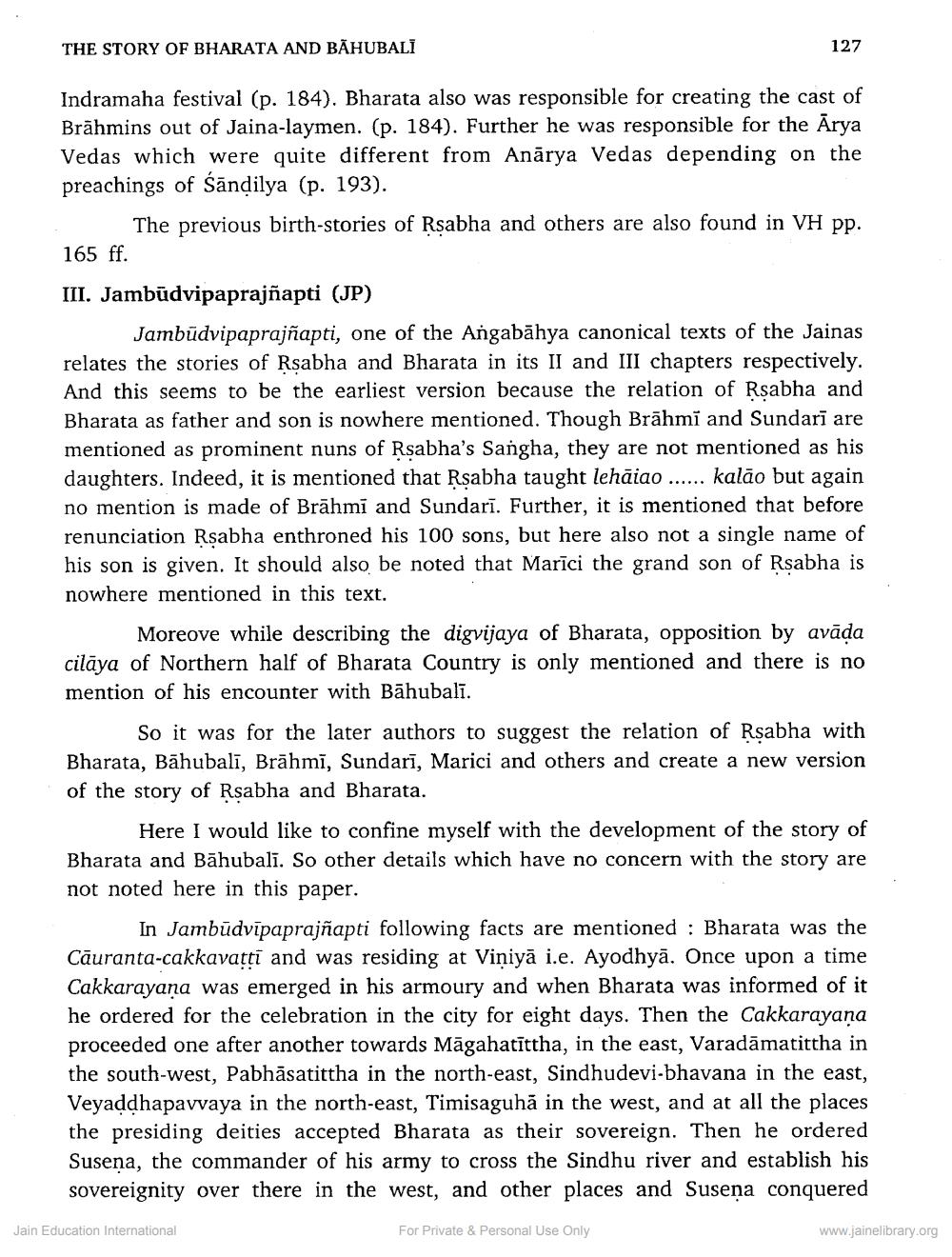________________
THE STORY OF BHARATA AND BAHUBALI
127
Indramaha festival (p. 184). Bharata also was responsible for creating the cast of Brāhmins out of Jaina-laymen. (p. 184). Further he was responsible for the Ārya Vedas which were quite different from Anārya Vedas depending on the preachings of Śāndilya (p. 193).
The previous birth-stories of Rsabha and others are also found in VH pp. 165 ff. III. Jambūdvipaprajñapti (JP)
Jambūdvipaprajñapti, one of the Angabāhya canonical texts of the Jainas relates the stories of Rsabha and Bharata in its II and III chapters respectively. And this seems to be the earliest version because the relation of Rşabha and Bharata as father and son is nowhere mentioned. Though Brāhmi and Sundarī are mentioned as prominent nuns of Rsabha's Sangha, they are not mentioned as his daughters. Indeed, it is mentioned that Rsabha taught lehāiao ...... kalāo but again no mention is made of Brāhmi and Sundarī. Further, it is mentioned that before renunciation Rşabha enthroned his 100 sons, but here also not a single name of his son is given. It should also be noted that Marici the grand son of Rsabha is nowhere mentioned in this text.
Moreove while describing the digvijaya of Bharata, opposition by avāda cilāya of Northern half of Bharata Country is only mentioned and there is no mention of his encounter with Bāhubalī.
So it was for the later authors to suggest the relation of Rsabha with Bharata, Bāhubalī, Brāhmī, Sundarī, Marici and others and create a new version of the story of Rsabha and Bharata.
Here I would like to confine myself with the development of the story of Bharata and Bāhubalī. So other details which have no concern with the story are not noted here in this paper.
In Jambūdvīpaprajñapti following facts are mentioned : Bharata was the Cāuranta-cakkavatti and was residing at Viniyā i.e. Ayodhyā. Once upon a time Cakkarayana was emerged in his armoury and when Bharata was informed of it he ordered for the celebration in the city for eight days. Then the Cakkarayana proceeded one after another towards Māgahatīttha, in the east, Varadāmatittha in the south-west, Pabhāsatittha in the north-east, Sindhudevi-bhavana in the east, Veyaddhapavvaya in the north-east, Timisaguha in the west, and at all the places the presiding deities accepted Bharata as their sovereign. Then he ordered Susena, the commander of his army to cross the Sindhu river and establish his sovereignity over there in the west, and other places and Susena conquered
Jain Education International
For Private & Personal Use Only
www.jainelibrary.org




